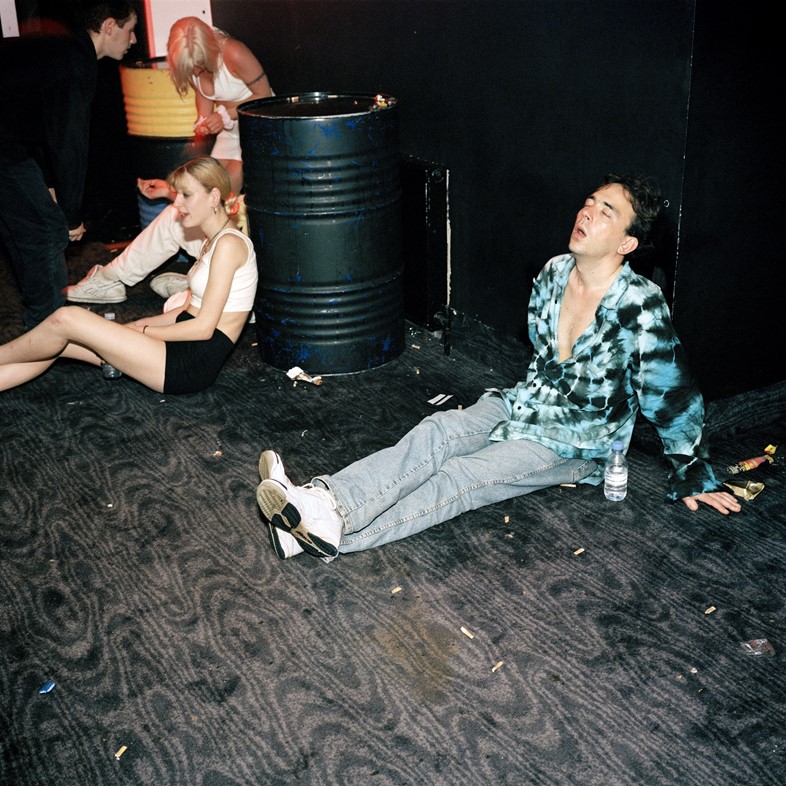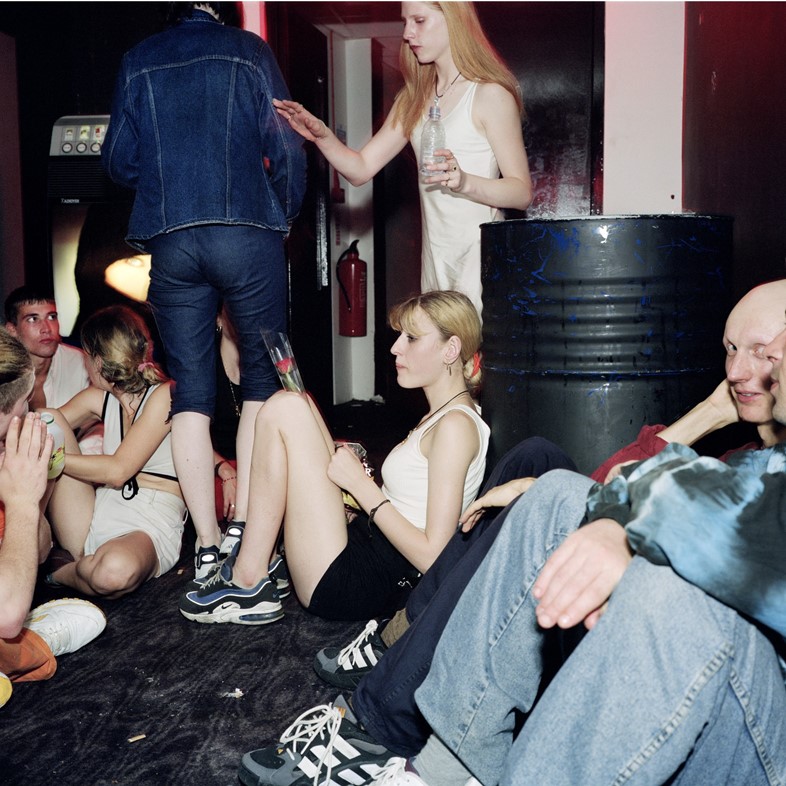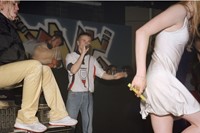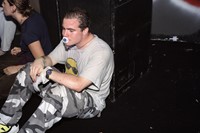“People will always want to get out, come together and party. The British are very good at it,” says Ewen Spencer as his new book Hardcore Soul – a collaboration with Gabber Eleganza and Mark Leckey – is published
The dancefloor is as much a space of pleasure and play, as it is a site of revolution and resistance. Nightclubs and dance spaces have – and continue to be – central to subcultures across the world, which challenge and reimagine cultural and societal norms. It is this aspect of the dancefloor that photographer Ewen Spencer captures in his series Hardcore Soul, a set of photographs that have now been released as a publication by Spencer, Gabber Eleganza’s Alberto Guerrini and artist Mark Leckey. The images centre on Britain’s Northern Soul and Happy Hardcore music scenes, and stand as a testament to the positive power of rave culture.
Spencer first began documenting subcultures during his student years in the mid-1990s. “Northern Soul was the first music scene I photographed because it was a scene I was already involved with,” he says. “It was a great way to spend my summers and student grants when I was at art school in Brighton. And then, three years later, I began photographing the UK’s Happy Hardcore scene. Both movements offer an insight into working-class kids celebrating and enjoying dance music.” The book, which is comprised of two separate publications, is made up of an 80-page collection of photographs and a 16-page conversation between Spencer and Leckey that reflects on the significance of such subcultures. The camaraderie that extends across Northern Soul and Happy Hardcore fans is, for Spencer, the most moving component of the music scenes. For at a time when Britain was becoming increasingly divided, working-class communities continued to come together and celebrate.
“I like people,” Spencer says. “And the people I’ve photographed are my people, so I felt very comfortable in these places. I knew enough of that world to understand where they were coming from as I’d done my share of raving and all-nighters with my friends, growing up.” Yet, Spencer specifies that it wasn’t so much the act of raving that he was seeking to capture, rather, it was the intimate moments, the instances that reflect the vulnerabilities common to us all. “I wasn’t looking for dancers – probably the opposite, actually. I was looking for moments and characters that represented a commonality that all of us can relate to. These might be moments of vulnerability that reflect the larger issues of sexuality, class, ambition or solitude.”

Above all, Spencer aims to reformulate and reimagine the negative narratives constructed by the mainstream media about Britain’s working classes. More often than not, working-class subcultures are either fetishised, sentimentalised or vilified by middle-class photographers. “I don’t want to photograph people as tragedy. Serious photography, up until five or ten years before I made those pictures, has often depicted the British working classes through broken windows, if you will. I didn’t want to approach the Northern Soul and Happy Hardcore music scenes in that way. I wanted to celebrate the working classes because there was so much to celebrate. And what better place to celebrate than the dance floor where people are creating and making things out of their own will?”
This kind of affirmation is central to Hardcore Soul. For Spencer, the genuine moments of togetherness he has photographed are a part of British history, an era that is difficult to imagine in today’s increasingly individualised and fragmented society. Yet, the photographer remains optimistic. “Some people were really interested in my work at the time. But it’s really with hindsight that these things become relevant. We look back to see what has informed today,” he says. “Things have changed a lot, but I do believe that new subcultures will start bubbling and coming to the fore in venues and locations elsewhere. Because people will always want that: they’ll always want to get out, come together and party. The British are very good at it.”
Hardcore Soul by Ewen Spencer is out now, published by Gabber Eleganza.






